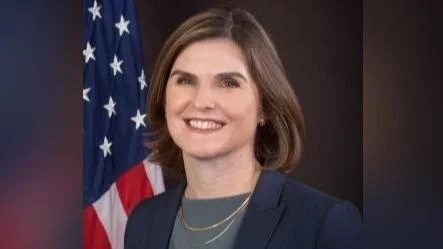Parishes and dioceses need to act swiftly to activate consultative bodies and encourage broader participation in mission and ministry, as per church law, according to members of the Synod of Bishops. This step is deemed essential for the Catholic Church's aspiration to become more "synodal."
The synod members emphasized, “Without concrete changes in the short term, the vision of a synodal Church will not be credible and this will alienate those members of the People of God who have drawn strength and hope from the synodal journey.” The final document was approved on October 26.
Pope Francis initiated the synod in 2021, urging parishes, dioceses, and bishops’ conferences to conduct listening sessions before the first assembly in Rome in 2023. The current assembly began with a Mass at the Vatican on October 2.
Members voted on each paragraph of a 155-paragraph document that included long-term projects like discerning women deacons' roles, reforming seminary training, and involving more laypeople in selecting bishops. Immediate actions suggested include hiring more women and laymen for teaching roles in seminaries or making pastoral councils mandatory.
All paragraphs were approved by two-thirds of voting members; out of 355 present voters, passage required 237 votes. A paragraph about increasing women's profiles received significant opposition with 97 negative votes but passed with 72%.
“Synodality is a path of spiritual renewal and structural reform,” stated members. They aim for a participatory church that works together for all members' good.
The document addressed issues like exclusion due to marital status or sexuality briefly but stressed equal dignity between men and women through baptism. It called for recognizing women's contributions more fully within church life.
“Women continue to encounter obstacles,” it noted regarding their roles in church areas. The call was made for implementing Canon Law opportunities concerning women's roles without hindrance: “What comes from the Holy Spirit cannot be stopped.”
Additionally, they highlighted ongoing discernment over women's access to diaconal ministry: “This discernment needs to continue.”
Acknowledging clerical sexual abuse crimes, they insisted that commitment to synodality is crucial for preventing abuse through transparency and accountability measures.
Synodality aims also at overcoming clericalism characterized by power misuse within churches leading often towards abuses whether sexual or economic along with conscience abuses by ministers said members emphasizing lay people's role assisting bishops efficiently while avoiding arbitrary authority imposition as outlined where consultations are mandated legally underlining justice living communities principles alongside ensuring transparency during decision-making processes accompanied by evaluations proving educational culture-changing tools communicated effectively beyond bureaucratic tasks alone
Debates arose around national bishops’ conference authority particularly doctrinally; hence calls were made studying theological-juridical statuses defining doctrinal-disciplinary competencies clearly necessary domains needing precision articulated finally documented expressed overall consensus
 Alerts Sign-up
Alerts Sign-up






